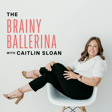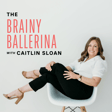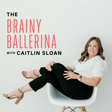
56. A New Chapter for Dance Kaleidoscope with Artistic Director Joshua Blake Carter
In this inspiring episode, I sit down with Dance Kaleidoscope Artistic Director Joshua Blake Carter to explore his multifaceted dance journey from a theater-loving high schooler in Atlanta to an influential choreographer and artistic leader in the dance industry.
Joshua shares pivotal moments in his development, including his time at the University of Arizona, his early choreographic commissions, and his 14-year tenure with Giordano Dance Chicago.
Now at the helm of Dance Kaleidoscope, he opens up about his leadership philosophy, audition process, and long-term vision for the company. Whether you're a dancer, educator, or choreographer, this episode is full of rich insights on persistence, artistry, and creating space for others to thrive.
Key Topics:
✨The transformative role of college dance and the importance of asking for opportunities
✨Navigating his first professional choreographic commission while still a college student
✨Transitioning from student to professional dancer and striking a realistic balance
✨What makes a great dancer in auditions (hint: it’s not perfection)
✨Why collaboration and respect are the cornerstones of his leadership style
✨His vision for Dance Kaleidoscope and what makes it a fulfilling place to work
✨Advice for young dancers on building a sustainable, long-term career
Connect with Joshua:
JOSHUA INSTAGRAM: instagram.com/jbcchoreography
DANCE KALEIDOSCOPE IG: instagram.com/dance_kaleidoscope_indy
DANCE KALEIDOSCOPE WEBSITE: www.dancekal.org
Links and Resources:
Get your copy of The Intentional Career Handbook
Set up ticketing for your next event with DRT (Make sure to mention that The Brainy Ballerina sent you!)
1-1 Career Mentoring: book your complimentary career call
Let’s connect!
My WEBSITE: thebrainyballerina.com
INSTAGRAM: instagram.com/thebrainyballerina
Questions/comments? Email me at caitlin@thebrainyballerina.com


